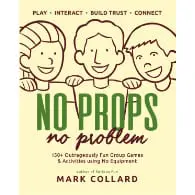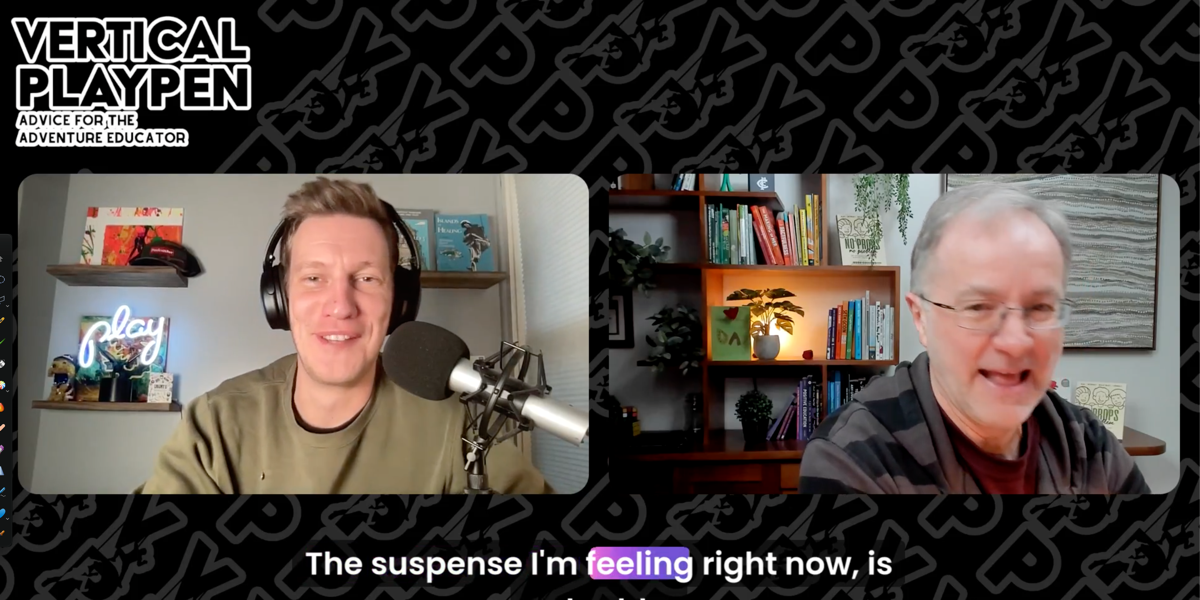If you use group games and activities to help people connect, I’m sure that some version of the question – Why are we playing games? – has been shared with you many times over the years.
Or, maybe it sounds something more like this – Why are we wasting time playing games? or I’m an adult, I’m not playing childish games, etc. You know what I mean.
No matter the form or substance of the remark, the person asking the question is really struggling to understand why we are doing what we are doing.
And fair enough. I think it’s a good thing that questions like these are asked because it strikes at the heart of our group’s readiness to engage and interact if the answer is not abundantly clear.
And if the reason we are asking our groups to do anything – not just games and activities – is not crystal clear, then this is on us as facilitators.
So, Why Are We Playing Games?
This topic came up during a recent Member’s Pod and it lit a fire under our conversation. Every one of us had confronted this question on multiple occasions, and in some cases, felt that our response did not satisfy the person asking the question.
So, it begged the question, what could we do to manage these questions more effectively.
Apart from the basic want of responding to a question from one of our participants, we all understood that the quality of our response may cause “one rotten apple” to spoil all of the apples in the barrel.
This led to a wonderful discussion of a bunch of simple strategies.
How To Respond
The following list covers the essence of our conversation.
And while we agreed that no one response was necessarily better than another (they are not listed in any particular order,) showing empathy towards the person (or persons) asking the question was critical to successfully navigating someone’s hesitation to interact with games.
Be Empathetic
One of the most successful ways to diffuse a highly volatile situation was to empathise with the person asking the question, eg “Yes, I can understand why it must look like we are wasting our time…” Any effort to view the situation through the eyes of another is always useful. Expressing empathy for another will help to demonstrate that you acknowledge how the other is feeling and that these feelings are valid. Having established this connection, we would then call on one or more of the following strategies to resolve the immediate issue.
What Do Others Think?
If you sense that most others (in the group) are comfortable with, or acknowledge the benefits of playing games (to achieve the specific goals of the program,) then inviting others to respond to the question can be a really powerful way forward. Not only is the response coming from one’s peers, but it may also be described in a way that makes more sense to the person or persons asking the question. Generally, when I employ this tactic, I monitor the variety of responses I get from the group to be sure I am moving the conversation forward and that everyone is feeling valued and heard.
Evidence
For some people, understanding that there is a swathe of research and science that supports the use of group games & activities for the purposes of building relationships can satisfy even the most ardent of sceptics. Sceptics are always welcome, and one of the most powerful ways to deal with scepticism is to present the facts. To this end, I always have a few handy facts and research conclusions up my sleeve to quote to those who are unsure of the efficacy of what we are doing. Take a look at the ever-expanding volume of research into the science of play and connections to whet your appetite for the facts.
Honour Choice
When all else fails, I rely heavily on the Challenge by Choice principle. If someone is so stuck that they can not make sense of what we are doing, that it makes them uncomfortable, I always remind the participant that they have a choice to play or not. This strategy always diffuses the presence of any awkward moments. Humans do not like to be told what to do, and when they think they have no control, they will find ways to regain control – such as positing that what we are doing is a waste of time, ie hoping to gain more agreement from others in the group. And, in the event one or more participants choose not to play, I make it my personal and professional mission to make my program so damned fun, that is it impossible to walk away from. Fun and play are powerful magnets that attract willing participation, but they are most beneficial when the participants feel that they have control and that they will not be embarrassed, threatened or made to look like a fool.
Proactive Strategies
Honouring choice (as discussed above) is a powerful framework within which to invite participation and manage the presence of Why are we playing games? thoughts. It is also a powerful strategy that can manage these thoughts in a proactive manner, rather than relying on other reactive strategies.
Indeed, you – the facilitator – have the greatest influence over the outward and express presence of such thoughts in the first place. If your program is framed well, sequenced carefully and conducted professionally, then it will be a rare moment when these sorts of questions are asked out loud.













Original post May 2022, last updated June 2022.